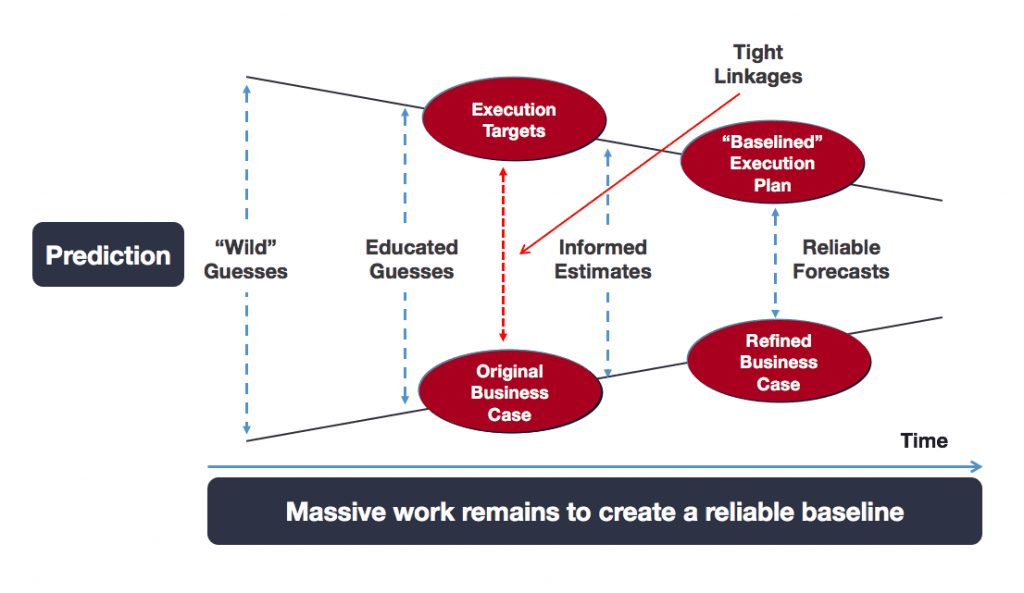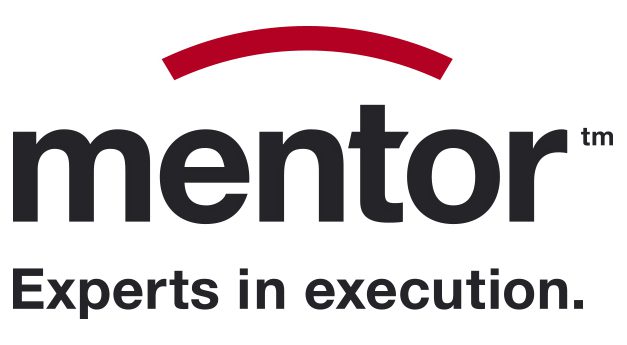Guesses to commitments
Program Managers often obscure the real facts with layers of fanciful stories. Stories that become even more garbled over time. It’s never wise to conceal an emerging catastrophic failure. Summarising and cleansing bad news, so that it becomes meaningless, is a destructive pattern – and always leads to an execution fiasco.
Most business functions have a mountain of data about historical performance. Data are used to forecast future results, typically by extrapolation. And they can be reasonably accurate.
But business transformation programs are not the same.
Plans are built on thousands of unproven assumptions – which may take many months to confirm.
At the outset, there is no reliable data to underpin a firm delivery estimate. The planning process always starts with guesses. These ‘guesses’ can’t change until experience confirms that ‘estimates’ are more accurate.

Many companies place too much confidence in ‘wild’ guesses and are blind, intentionally or otherwise, to the downstream hazards they create. Particularly those with “can do” cultures where bad news is unwelcome.
This is why programs often appear to be “delayed” when, in truth, the forecast dates were always ‘guesses.’
The weight of expectation on Program Managers to “keep people’s feet to the fire” and hold questionable dates is overwhelming. But they can easily conceal unpleasant news, when results fall short of forecasts. Program management’s focus is usually on ‘persuading’ senior management to continue.
To avoid unwelcome surprises, a wiser solution would be to ‘educate’ senior management teams on the journey from ‘wild guesses’ to ‘reliable forecasts’.
Switched-on top management teams do realise that initial estimates are little more than guesses. They openly discuss and question early assumptions. If these are wrong, they can update assumptions – based on what they learn as work is completed.
This graph shows how guesses become more educated and informed over time. Eventually, they can become a credible baseline for execution plans.
And, naturally, this is what everyone wants.
Did you like this blog? I’d welcome your feedback!
Are there other topics would you like to see covered in our blogs?
Please let me know at: david.hilliard@mentoreurope.com


